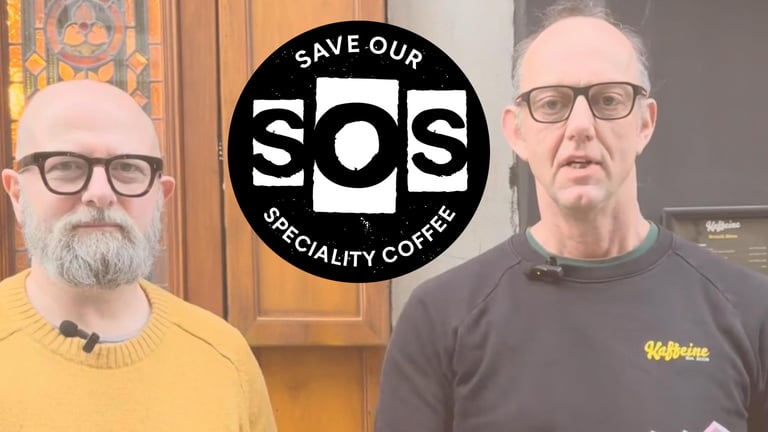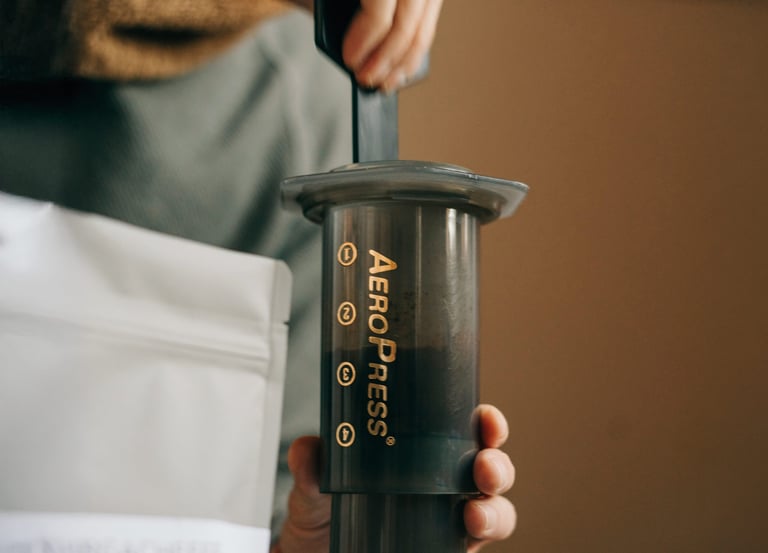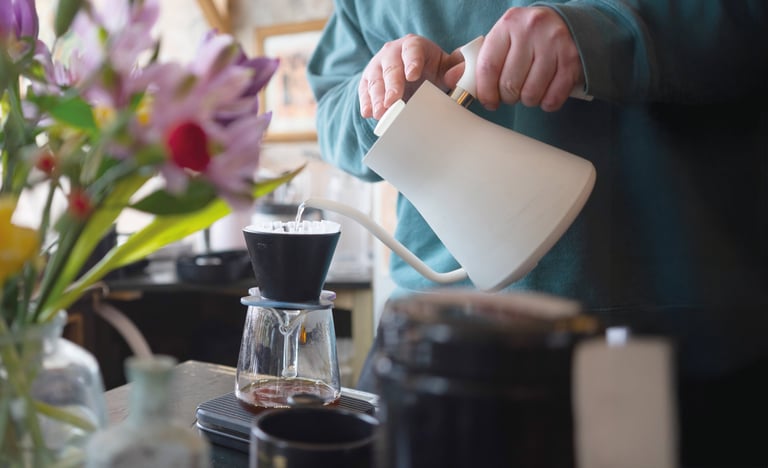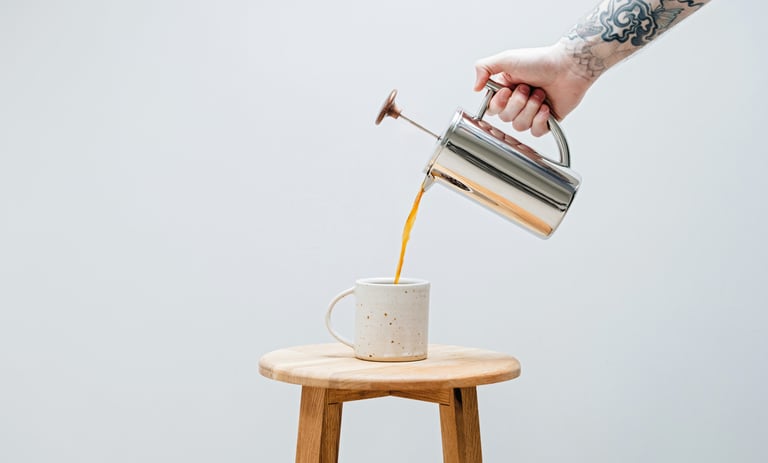My life in coffee: Lisa Lawson
Dear Green Coffee, Glasgow Coffee Festival and the Scottish AeroPress Championships spills the beans to Selena Young about key moments in her coffee career
As founder of Dear Green Coffee, Glasgow Coffee Festival and the Scottish AeroPress Championships, Lisa has played a significant role in driving forward the speciality scene in Scotland. She spills the beans to Selena Young about key moments in her coffee career
Do you remember your first cup of coffee?
Growing up there wasn’t really coffee in my house, except for a percolator which came out at dinner parties or Christmas. I probably had my first coffee when I was working as a chef and needed some caffeine to get me through the shift, so it was for fuel rather than the experience.
On holiday in Barcelona I had a café con leche on Las Ramblas and remember thinking, Oh wow, this is a really different coffee experience. I tried speciality coffee for the first time in Australia in 1999 and that was when I started to view coffee as something special.
What was your pre-coffee career?
I started in hospitality when I was 14, mostly working in bars and restaurants. Before moving into coffee, I worked in the wine industry for around six years which helped to develop my palate. It was also where I built a network of contacts, and some of the restaurants I sold wine to became my first coffee customers.

What took you into the world of coffee?
I went to Australia for the biggest party in the world: the millennium. When I was there I got a job in a local deli but after a week or two there wasn’t much work to do, so they randomly gave me an address and asked me to help someone roast coffee in their mum’s garage. I packed beans into bags, learnt a lot about the craft and completely fell in love with it.
The roastery ended up being pretty successful and the experience of helping a business grow from simple beginnings was extremely valuable when I launched Dear Green. I left Australia in 2002 but didn’t have the courage to follow my dreams until 2011 when I established the roastery.
The only way I could work in speciality coffee in Glasgow was to start my own company; existing businesses didn’t have the same values or roast coffee to the same standards I aspired to. It was a long journey but well worth the wait.
Filter or espresso?
Filter. I like a long drink and it’s less concentrated so the flavours open up more. Espresso can be quite intense sometimes and has a higher caffeine content for the volume of liquid. Filter is more like coffee cupping as you experience the flavours on separate levels.
What’s your morning coffee ritual?
I get up, put the kettle on and make an AeroPress. I stick it in a KeepCup and dash out the door to work.
I have lots of lovely ceramic cups from local potters, so if I’m at home I have a brew in one of those. There’s one particular cup which is my go-to: it’s made by Garnet McCulloch from FireWorks Studio in Glasgow.
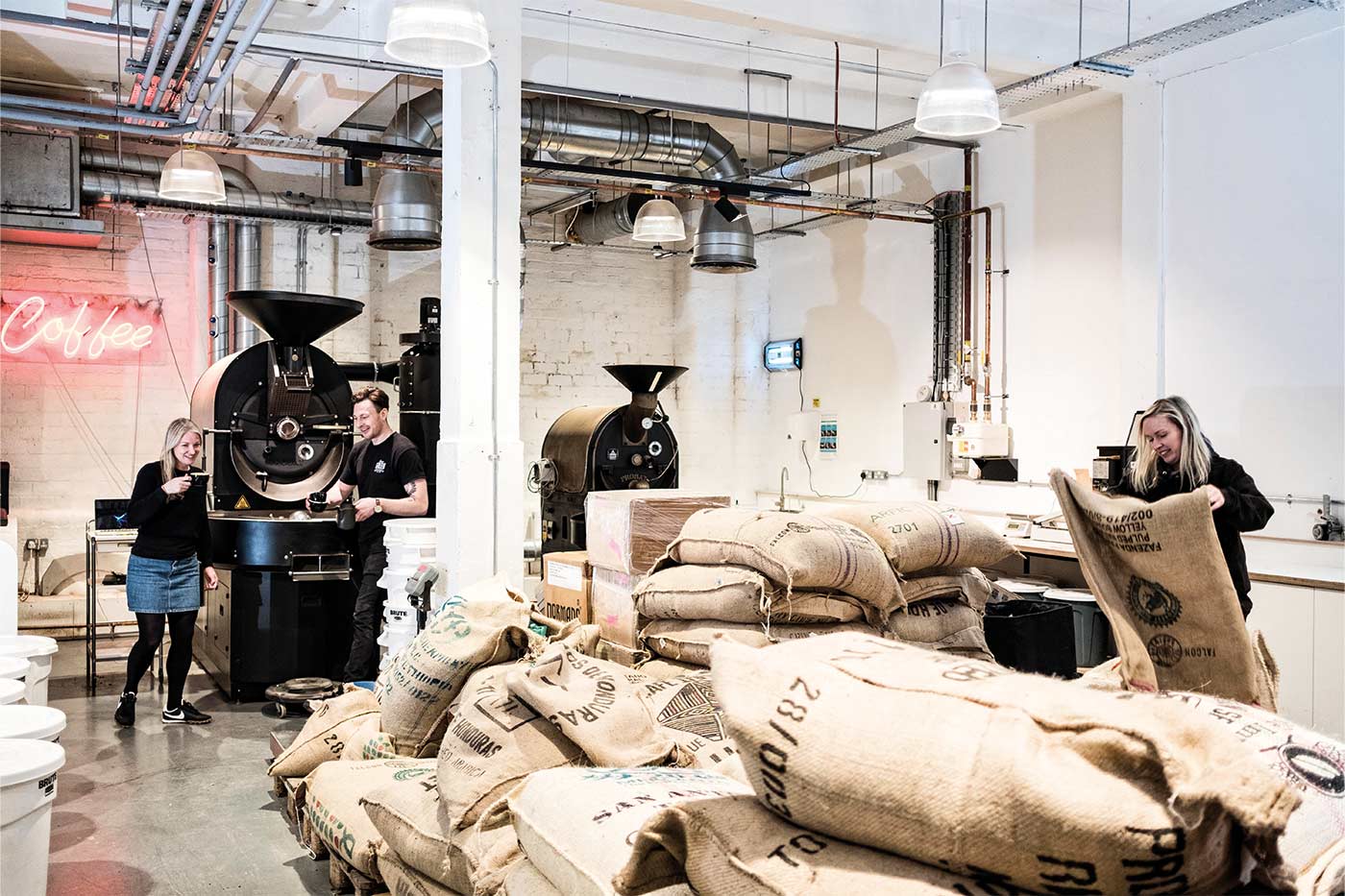
The worst coffee you’ve drunk?
Sometimes I look at the coffee machine, grinder or sticky milk wand in a cafe and walk straight back out. Or if I smell robusta in the air, I’ll leave before I even get to the counter.
There are a few coffees I’ve tried that use new processes like aerobic fermentation and they haven’t been executed well. I recently had a coffee which tasted like dry sherry.
I’ve seen a few absolute disaster situations in cafes, like putting pre-ground coffee into grinders, using stale coffee or not cleaning the espresso machine so there’s a build-up of burnt oils giving the coffee a burnt ashy flavour. The beans might have been perfect but it failed at the final hurdle.
Who would you like to sip a brew with?
I read Melinda Gates’ book a couple of years ago and found it really inspirational so I think she’d be an incredible person to have a coffee and chat with. Likewise Michelle or Barack Obama.
Oh and Nicola Sturgeon. I think she’s been pretty solid throughout the pandemic, whatever your political persuasion. I saw her TED Talk about female leaders and thought it was very inspiring – I’d also love to know what coffee she drinks.
Your fave coffee pairing?
I like coffee on its own so I can enjoy it for what it is.
If you have something really sweet with coffee you’re going to have a carry-over effect on your palate, and the coffee can then just taste bitter. I’d rather enjoy the natural sweetness of the coffee.
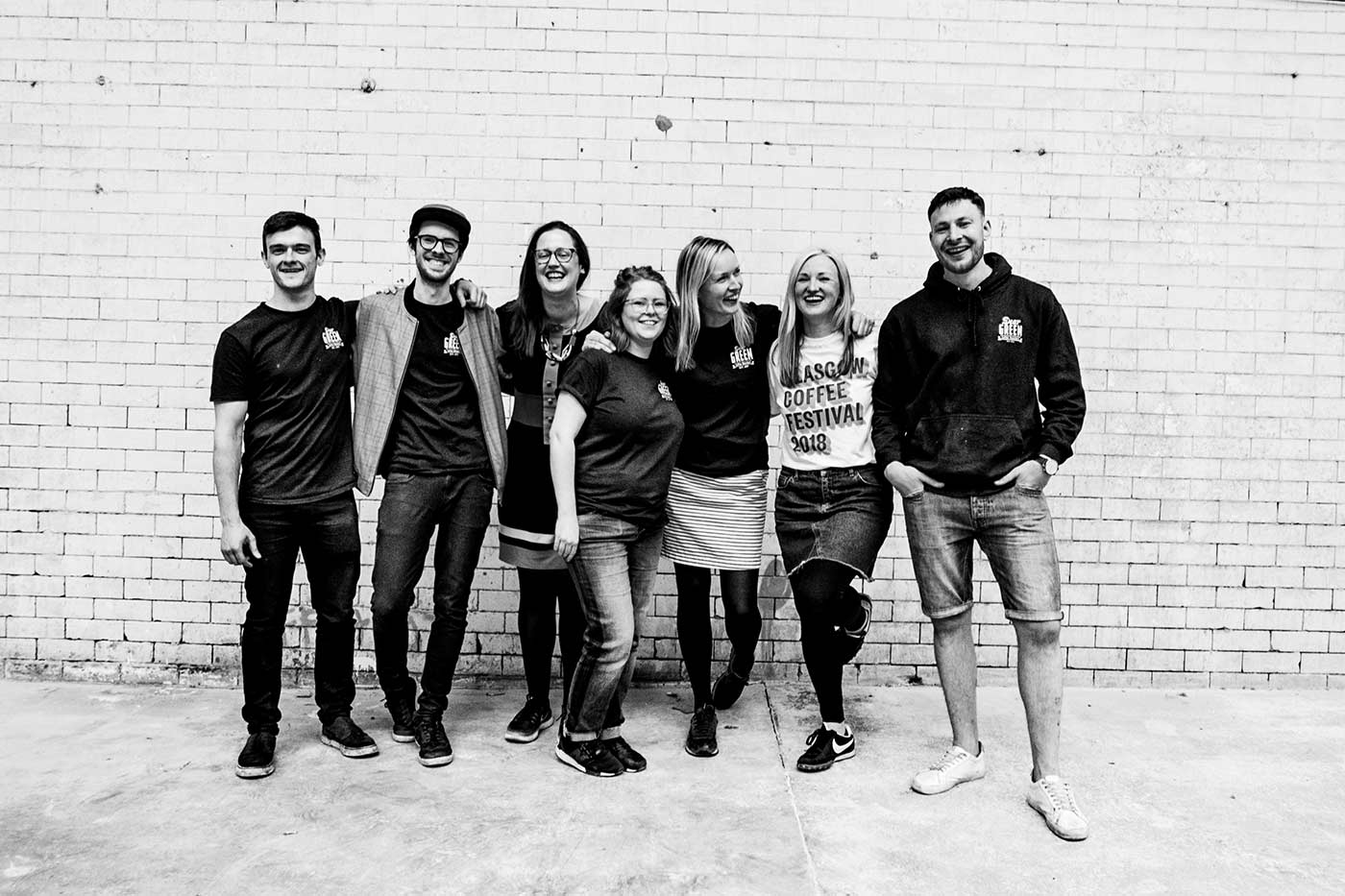
What’s the future for speciality coffee?
What I’ve witnessed over the years is how much more discerning the consumer has become and how that creates demand in the industry.
Speciality coffee has become more mainstream and will continue to do so. The industry will get bigger and the standards will continue to get higher. There’s a benchmark for coffee quality in cafes now which is awesome.
My dream is that one day coffee will be like wine and the consumer will ask for a certain varietal from a region and understand what those flavours could and should be.
I got away with so much in my early days of roasting; my learning curve was at the expense of my customers. Now roasting is very scientific and you have to learn an awful lot. In the early days we were plotting a graph on paper, whereas now it’s done through software. It’s the same at origin. I remember being in Ethiopia in 2014 and some of the people working in the coffee co-ops had never seen a smartphone before and now they own them. During lockdown I was able to have satellite calls with farmers which wasn’t possible before. There are going to be some big breakthroughs in the next generation of coffee farmers in terms of what they can achieve, the respect for their product and how much money they can make in the value chain.
Enjoyed My life in coffee: Lisa Lawson? Read more coffee-related features.
